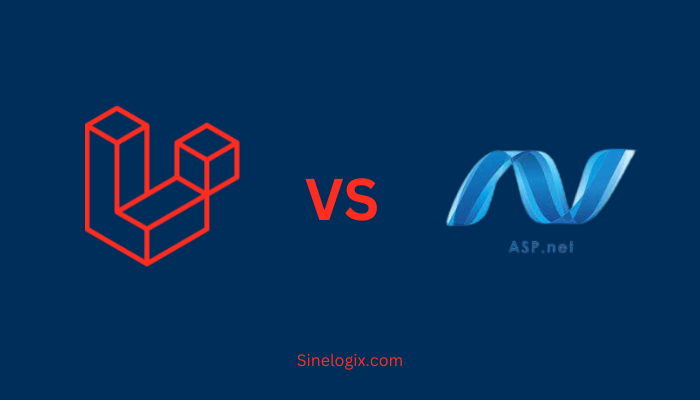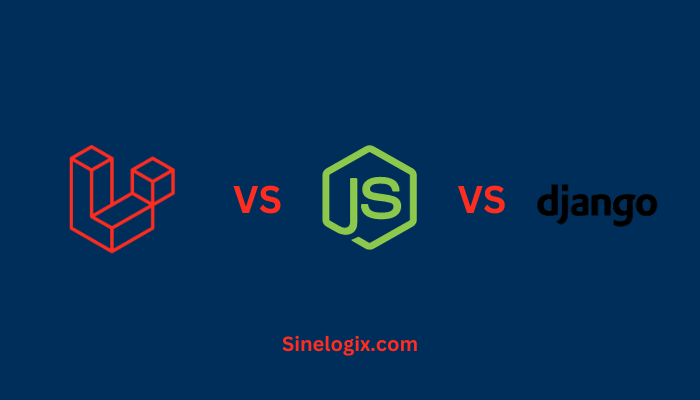In the vast landscape of web development, the choice between Laravel, a PHP framework, and ASP.NET, a web development framework developed by Microsoft, can significantly impact the outcome of a project.
This comprehensive analysis aims to explore the intricacies of Laravel and ASP.NET, providing developers with valuable insights to make informed decisions based on their project requirements.
Features
Laravel and ASP.NET represent two different paradigms in web development, each offering a unique set of features.
Laravel, a PHP framework, is renowned for its elegant syntax and developer-friendly experience. It provides features such as Eloquent, an expressive ORM (Object-Relational Mapping), a powerful templating engine named Blade, and a convenient query builder. Laravel follows the convention over configuration principle, emphasizing simplicity and rapid application development.
ASP.NET, developed by Microsoft, is a framework that supports various programming languages, with C# being the most commonly used. It offers features such as the ASP.NET MVC architecture, a robust set of libraries, and seamless integration with Microsoft technologies. ASP.NET emphasizes a modular and scalable approach, making it suitable for a wide range of applications.
Market Usage Statistics
Analyzing the market usage statistics of Laravel and ASP.NET provides insights into their real-world adoption. Laravel, as a PHP framework, has gained widespread popularity, particularly in the startup and mid-sized project space. Its vibrant community and rich ecosystem of packages available through Composer contribute to its success.
ASP.NET, backed by Microsoft, is a prevalent choice for enterprise-level applications. Its integration with Microsoft technologies and strong support for large-scale projects make it a preferred framework in the corporate world.
Popularity Over the Years
Exploring the historical popularity of Laravel and ASP.NET unveils insights into their evolution and sustained relevance. Laravel has experienced rapid growth since its inception, becoming one of the most sought-after PHP frameworks. Its commitment to modern development practices and a focus on developer experience contribute to its widespread adoption.
ASP.NET, with the backing of Microsoft, has maintained a strong presence over the years. Its evolution from ASP.NET Web Forms to ASP.NET MVC and now ASP.NET Core reflects its adaptability to changing development trends.
Pros and Cons of Laravel and ASP.NET
To make informed decisions, developers must evaluate the strengths and weaknesses of each framework.
Laravel’s Pros:
- Elegant syntax and developer-friendly features.
- Large and active community with extensive documentation.
- Rich ecosystem of packages available through Composer.
- Convention over configuration for streamlined development.
Laravel’s Cons:
- May not be as suitable for large, enterprise-level projects with complex requirements.
- Convention over configuration may limit flexibility in certain scenarios.
ASP.NET’s Pros:
- Versatility, supporting various programming languages within the .NET ecosystem.
- Seamless integration with Microsoft technologies.
- Strong support for large-scale enterprise applications.
- Modular and scalable architecture.
ASP.NET’s Cons:
- Steeper learning curve, especially for beginners.
- Windows-centric, which may limit deployment options.
- Can be perceived as heavyweight for smaller projects.
Applications
Understanding the applications of Laravel and ASP.NET is crucial for choosing the right framework for a given project.
Laravel Applications:
- Content management systems (CMS).
- E-commerce platforms.
- Small to medium-sized web applications.
- Projects where rapid development is a priority.
ASP.NET Applications:
- Enterprise-level applications.
- Large-scale projects with a focus on scalability.
- Applications requiring seamless integration with Microsoft technologies.
Laravel Vs ASP.NET: A Detailed Comparison
Similarities and Differences
While Laravel and ASP.NET share the goal of web application development, they differ significantly in their design philosophies and approaches.
Similarities:
- Both frameworks support the MVC architecture.
- Have active communities contributing to their ecosystems.
- Embrace modern development practices.
Differences:
- Laravel is a PHP framework, emphasizing simplicity and convention over configuration.
- ASP.NET is a Microsoft-developed framework supporting various programming languages within the .NET ecosystem.
- Laravel’s ecosystem is larger and more diverse, catering to a wider range of project sizes and complexities.
- ASP.NET’s seamless integration with Microsoft technologies and focus on scalability make it a strong contender for enterprise-level applications.
Laravel Vs ASP.NET: Which Should You Choose?
The decision between Laravel and ASP.NET hinges on a thorough evaluation of project needs and team expertise.
Consider Laravel if:
- You prioritize ease of use and quick development.
- Your project is relatively small to medium-sized.
- You value the simplicity and elegance of Laravel’s syntax.
Consider ASP.NET if:
- Your project is large-scale or enterprise-level.
- Scalability and seamless integration with Microsoft technologies are crucial.
- You are comfortable working within the .NET ecosystem.
Alternatives of Laravel and ASP.NET
While Laravel and ASP.NET are popular choices, exploring alternatives can provide developers with additional options tailored to specific project needs.
Symfony (PHP):
- Suitable for large-scale projects with a modular and flexible architecture.
- Ideal for developers comfortable with a configuration-centric approach.
Express.js (Node.js):
- Minimalist web application framework for Node.js.
- Ideal for building APIs and single-page applications.
Ruby on Rails:
- A Ruby-based framework known for convention over configuration and rapid development.
- Suitable for projects where the Ruby language is preferred.
Related Articles:
Conclusion
The choice between Laravel and ASP.NET is a crucial decision requiring careful consideration of various factors. Both frameworks have their strengths and weaknesses, and the right choice depends on the specific needs of the project.
Laravel excels in rapid application development and is well-suited for startups and smaller teams. ASP.NET, with its versatility and scalability, is an excellent choice for large-scale applications requiring seamless integration with Microsoft technologies.




